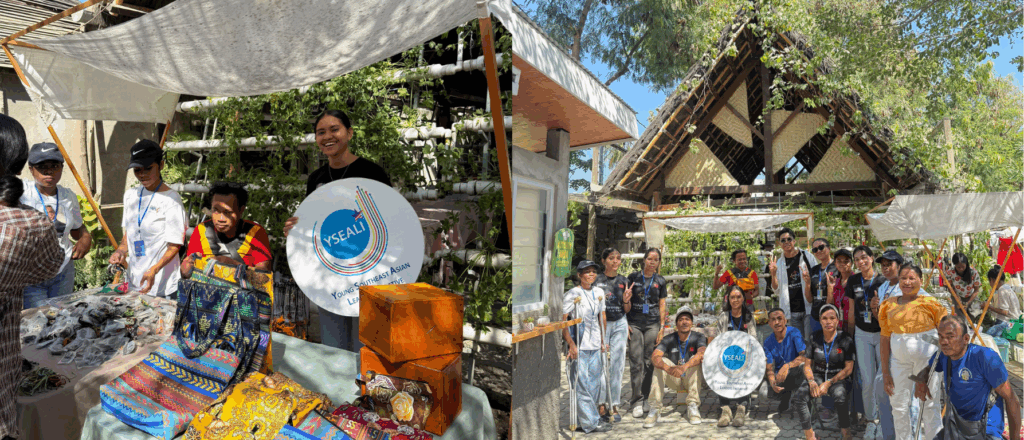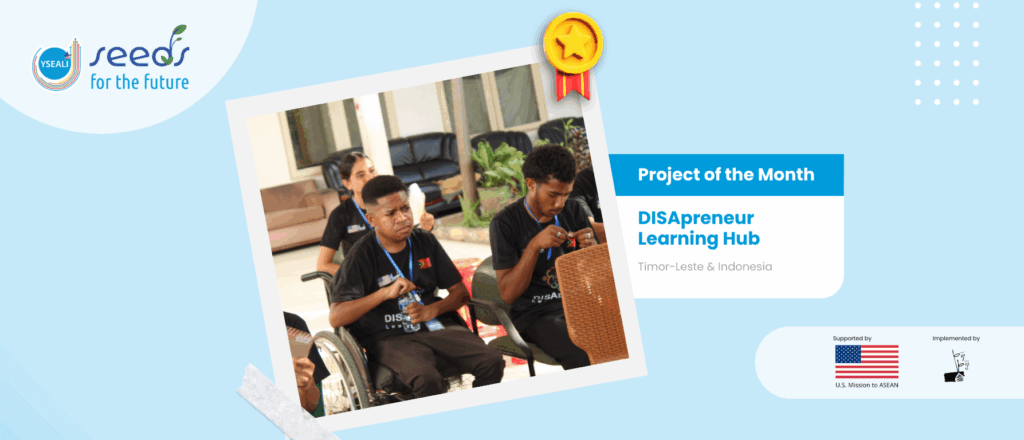About the Project
Both in Indonesia and Timor-Leste, people with disabilities face barriers in education, jobs, and financial opportunities. This results in high unemployment and dependence on family members. In Indonesia, only 3.2% of the estimated 22.5 million people with disabilities are employed. In Timor-Leste, more than 38,000 people with disabilities lack stable livelihoods.
These barriers artificially block talent from the workforce and reduce economic contribution. We want to provide entrepreneurship skills, mentorship, small grants, and market connections (including pop-up markets) to people with disabilities so they can gain financial independence and help their communities prosper.
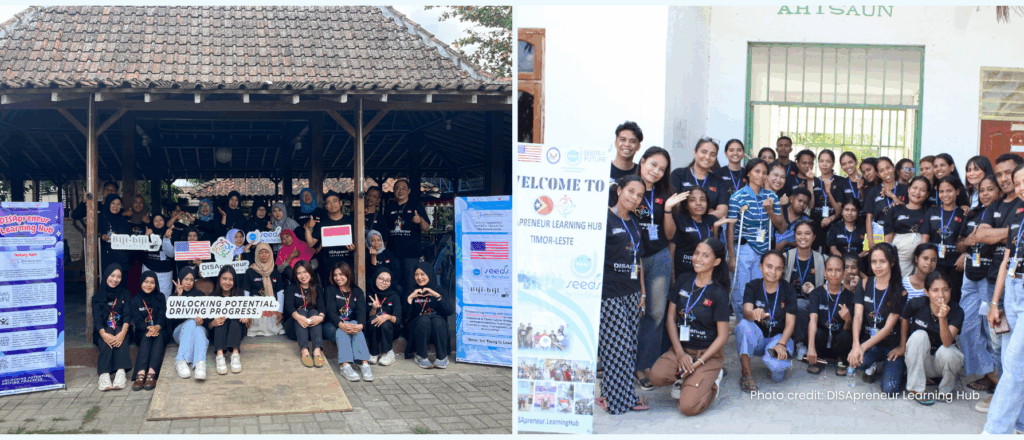
Why do you care about this specific topic/issue?
Entrepreneurship is one of the strongest pathways for people with disabilities to gain empowerment and create meaningful opportunities.
Why did you decide to start this project?
We met many people with disabilities who have strong talents but very few mechanisms to develop them. This inspired us to create a suitable space where they could learn business skills and build confidence. We designed the DISApreneur Learning Hub (the Hub) to offer practical training and direct support that helps them grow as entrepreneurs.
What are your goals for this project?
We help people with disabilities start small businesses and improve existing ones so that products reach more customers. Our goal is for them to build business knowledge, develop digital skills, and gain the confidence to market their work. We also help disability-led businesses get recognized as valuable contributors to local economies.
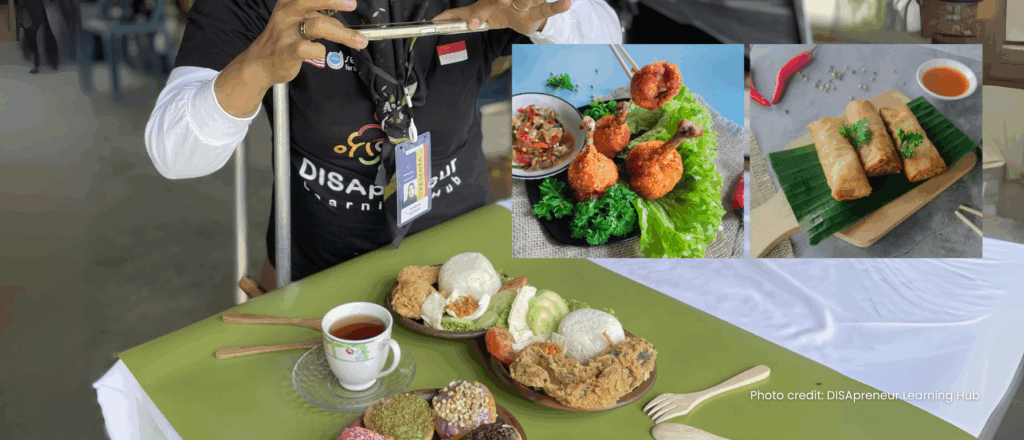
How will YSEALI Seeds help you achieve your goals?
YSEALI Seeds allows us to establish the DISApreneur Learning Hub, provide training, cover the logistics costs, and provide learning materials. The credibility of the YSEALI brand helped us gain trust from local partners, making it easier to recruit youth volunteers. Monthly mentorship from the YSEALI Seeds for the Future Project Manager and webinars with professional speakers have also guided our work.
What have you accomplished and implemented so far?
Since launching, we have conducted 11 training sessions: five in Indonesia, five in Timor-Leste, and one online. On average, test scores improved from 54% before training to 84% after, showing growth in business knowledge, digital skills, and entrepreneurship readiness. We have engaged 43 people with disabilities across both countries and worked with 103 volunteers.
We also created opportunities for product promotion. In Indonesia, we organized a professional product photography session. In Timor-Leste, people joined a local market exhibition. On social media, in just three months, our Instagram account has published 177 posts, reaching nearly 89,800 views and gaining 179 followers.
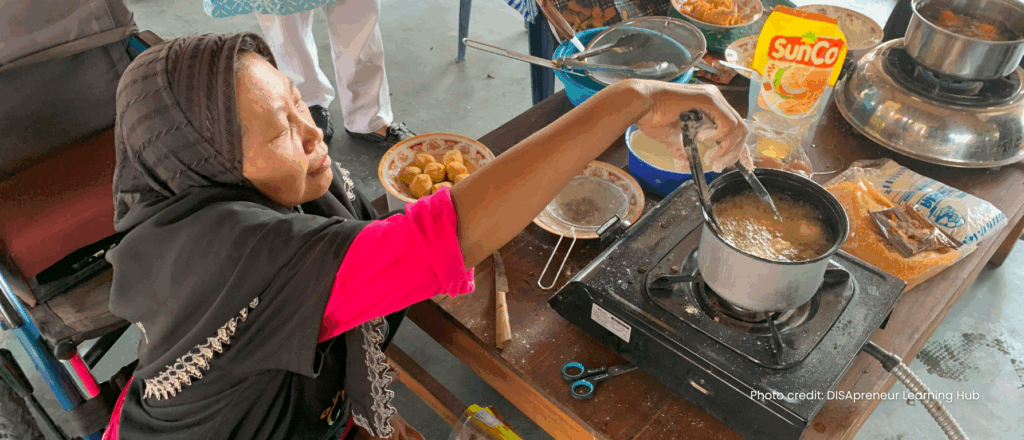
What are the most significant lessons learned you’ve experienced so far?
We learned that flexibility is essential because activities often need to be adjusted to accommodate unexpected challenges. Practical sessions and small-group discussions proved most effective in building confidence and fostering collaboration. We also saw the importance of engaging with local organizations and volunteers, who played a key role in supporting our activities.
What are the success stories you can share with others?
In Indonesia, we met Yulia Yosanti, a deaf woman who used to face rejection from employers, and watched her grow into the founder of Yulia Yosanti’s Kitchen. Through our cooking and business classes led by a professional chef, she learned to manage production and customer orders. Her first sales came during our Pop-Up Market, where she gained new clients and built her confidence to run her own business.
We also worked alongside Endang Sundayani, who uses a wheelchair, as she revived her crochet brand SRED: Seni Rajutan Endang after losing most of her income during the pandemic. Training on cost calculation, product photography, and digital marketing helped her refresh her product catalog and expand her reach online. Together with volunteers, she continues to strengthen her brand presence and grow her customer base.
In Timor-Leste, we saw participants turn creativity into livelihood through our art and entrepreneurship workshops. One young man began selling wood carvings both locally and online, earning his first independent income. Another participant, who previously had no steady work, now sells handmade crafts and contributes to her household income. With mentoring on branding and market access, participants are preparing for their first Local Pop-Up Market in Dili to showcase their products and connect with potential partners.
